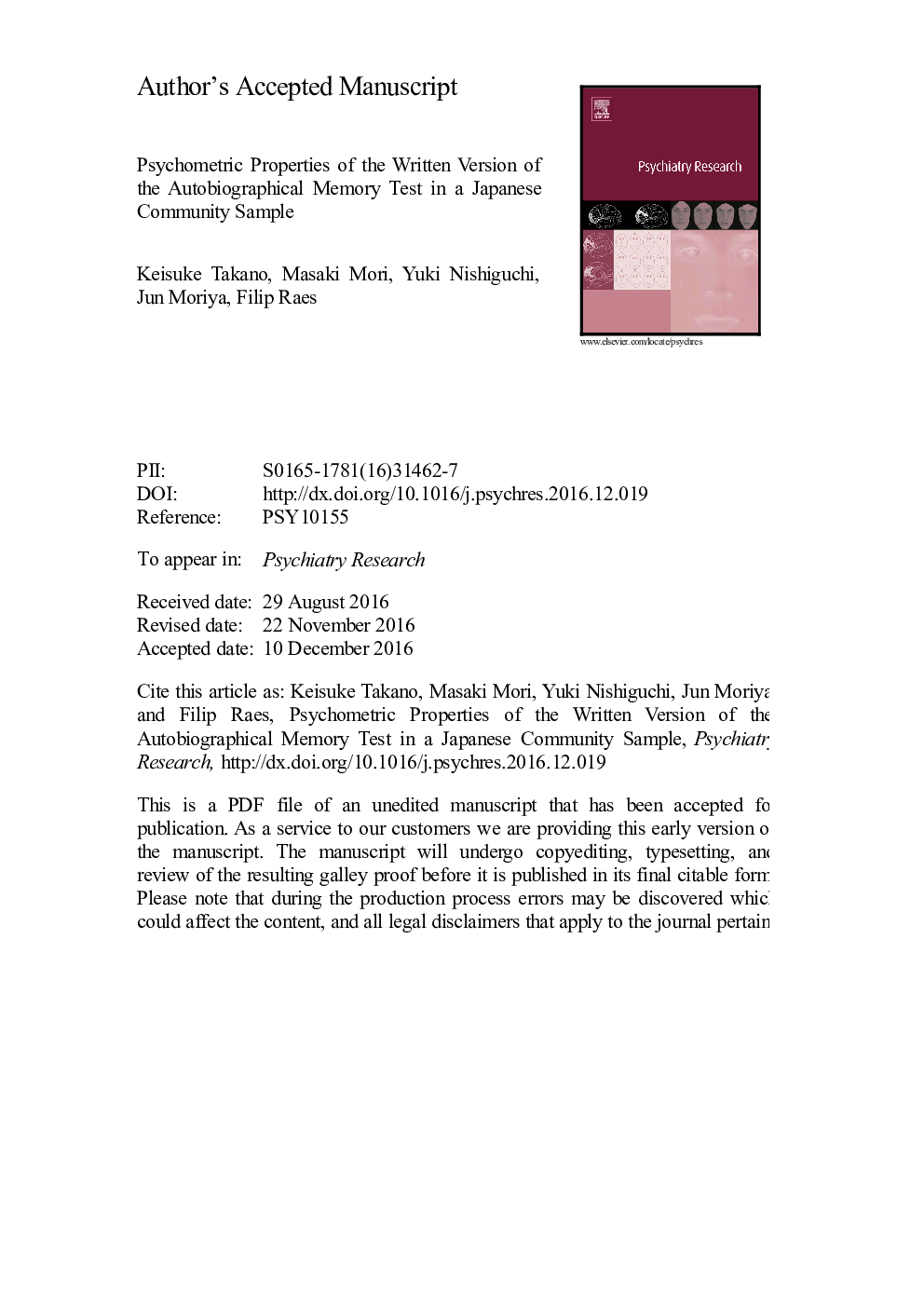| Article ID | Journal | Published Year | Pages | File Type |
|---|---|---|---|---|
| 4933615 | Psychiatry Research | 2017 | 30 Pages |
Abstract
The autobiographical memory test (AMT) is a widely used measure to assess the specificity of autobiographical memories. Reduced Autobiographical Memory Specificity (AMS) or increased overgeneralization of memories is considered as a cognitive hallmark of depression. Therefore, reduced AMS is the subject of much psychopathological research, and is a promising target for psychological interventions. Although considerable evidence has been gathered on the clinical relevance of reduced AMS over the past decades, studies on AMS have been mainly conducted in Western populations, and few have been conducted in Asian populations. This could be because of the unknown psychometric properties of the AMT given cultural and language differences. Therefore, the present study examined the psychometric properties of the AMT in a Japanese community sample (N=1240). Our data replicated that (a) the AMT has a uni-factorial structure; (b) AMS has a small but statistically significant negative correlation with depressive symptoms; (c) AMS shows a significant declining trend as a function of age, which influences the magnitude of the association between AMS and depressive symptoms in older adults. These findings suggest that the AMT has robust psychometric properties across different languages and cultural backgrounds.
Related Topics
Life Sciences
Neuroscience
Biological Psychiatry
Authors
Keisuke Takano, Masaki Mori, Yuki Nishiguchi, Jun Moriya, Filip Raes,
